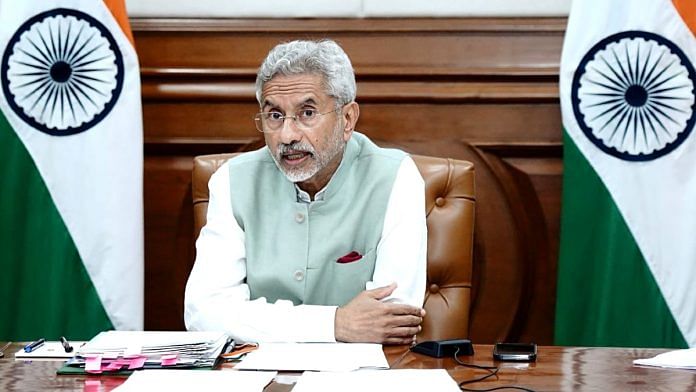New Delhi: India invoked diplomats’ parity, as provided by the Vienna Convention, due to concerns about Canadian personnel’s “continuous interference” in India’s affairs, Union Minister for External Affairs S. Jaishankar said Sunday.
Speaking at the Kautilya Economic Conclave, Jaishankar went on to refer to the Vienna Convention as the “relevant international rule” on the issue of Canada’s withdrawal of 41 diplomats from India and updating its travel advisory. Canada, on its part, has claimed that India issued an ultimatum in violation of the Vienna Convention and international law.
“There’s this whole issue of parity between the size of how many diplomats there are of one country versus how many diplomats there are of the other country. Parity is very much provided for by the Vienna Convention, which is the relevant international rule on this. But in our case, we invoked parity because we had concerns about continuous interference in our affairs by Canadian personnel. We haven’t made much of that public,” Jaishankar said.
In light of the withdrawal and India’s denial of Canada’s claims, the country’s Leader of Opposition Pierre Poilievre labelled Prime Minister Justin Trudeau as “a laughing stock in India”.
In an interview with Namaste Radio Toronto, a station that focuses on Canada’s Nepalese community, Poilievre described the issue as “another example of how Justin Trudeau is not worth the cost after eight long years”.
“He’s turned Canadians against each other at home and he has blown up our relations abroad. He is so incompetent and unprofessional that now we are in major disputes with almost every major power in the world and that includes India,” Poilievre said.
The interview also touched upon other issues, like hate crimes against Hindus in Canada and the future of the country’s diplomatic relations with Nepal, such as the potential setting up of a Canadian visa office in Nepal.
While Poilievre’s answers on visas for Nepalese people were relatively diplomatic, he issued a clear-cut condemnation of attacks on Hindu temples and threats to Indian diplomats at public events within Canada.
“We need to reinforce the security infrastructure programme that will allow temples, gurudwaras, mosques, synagogues, churches and anyone else to add more security, be it fencing, security guards, video cameras, so that we protect our places of worship against violence and vandalism,” Poilievre said.
Although the next Canadian general election is two years away, Poilievre has already emerged as the candidate threatening to unseat the incumbent Trudeau.
As reported by ThePrint in September, Poilievre was polling higher than Trudeau domestically on an Ipsos-conducted poll that assessed who would win if the Canadian elections were held at that time instead of in 2025.
Hailing from Calgary, Poilievre has been the Conservative Party chief since September 2022 and previously served as a cabinet minister under PM Trudeau’s predecessor, Stephen Harper.
(Edited by Zinnia Ray Chaudhuri)
Also read: US, UK back Canada in diplomatic parity row amid Ottawa’s claim of India violating international law



